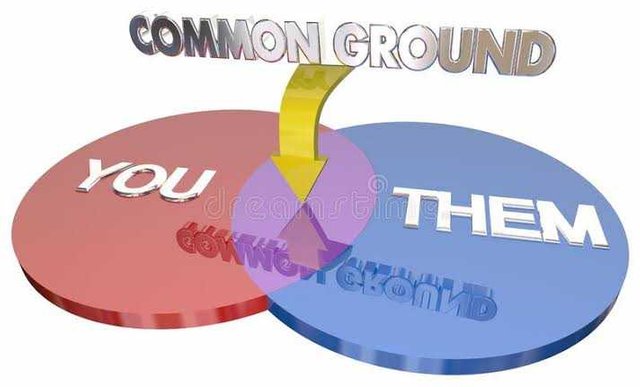
All negotiations are exchanges, but not all exchanges are negotiations. Exchanges and negotiations allow you to trade your current status, position, or solution for a new one. In an exchange, you swap your current status quo for a new one that you prefer, but neither party tries to alter the preset terms of the exchange.
For example, in a typical exchange, the seller sets the price and the buyer agrees. In contrast, one party may make a first offer, which is only a starting point in a negotiation. Moreover, while you may simply accept the offer—in which case we would consider it an exchange—you may reject it by making a counteroffer, thus starting the negotiation.
In most exchanges, value is created for both you and your counterpart. (The exceptions are involuntary, coercive exchanges, such as a robbery—something we will not address in this post!) For example, you buy a loaf of bread for $5; this purchase creates value since you care more about the bread than you do about the $5, while the baker values the $5 more than the bread. Thus, value is created because you each received something that you value more in exchange for something that you value less.
Now add a negotiation component to this exchange. The baker has set a price of $5. You want the bread, but believe you could do better, hoping to get it for $2—your aspiration price—and so you counter the baker’s offer at $2. If a deal is eventually struck, the agreement will be somewhere between the baker’s offer of $5 and your counteroffer of $2. Suppose the baker reduces her price to $3. Relative to the original exchange, no additional value was created in this negotiation, but you claimed an additional $2 in value that the baker lost when she agreed to reduce her price. This is value claiming. Your negotiating resulted in your getting the bread for $3 rather than for the initial offer of $5.
Of course, all of this is based on an important assumption—you and the baker value money equally. What if you and the baker do not value dollars equally? Assume she values each dollar more than you—maybe you derive pleasure from the experience of eating fresh-baked bread, while the baker is concerned that her start-up bakery be a success. If she values dollars more than you, more value is created for the exchange at the higher the price.
To move from the value created by an exchange to realizing the value that can be created within a negotiation requires you to interact thoughtfully and strategically with your negotiation partners. One way to claim more value is to create more value within the negotiation; by creating more value, you may be able to claim more. But be careful. One does not guarantee the other. In fact, if you were not thoughtful, you might claim less even when more value is created because the information you reveal when creating value can make it easier for your counterpart to claim more. Your counterparts can use this additional information to their advantage.
How much value is created or claimed depends on the negotiation. What you want is a good deal, one that not only meets your goal but is also better than your alternatives, exceeds your reservation price, and is as close to your aspiration as you can get. In my next post, we will consider a systematic approach to establishing what you want to achieve; then, we will determine the contribution of each of these parameters to your overall success in a negotiation.
Thanks for reading.


"What you want is a good deal, one that not only meets your goal but is also better than your alternatives, exceeds your reservation price, and is as close to your aspiration as you can get"
I think that is also one of the major value a quality exchange has to offer
Downvoting a post can decrease pending rewards and make it less visible. Common reasons:
Submit
Very true @mandate
Downvoting a post can decrease pending rewards and make it less visible. Common reasons:
Submit
While negotiating we must ensure that the deal does not cause any regret at the end of the business transaction.
Downvoting a post can decrease pending rewards and make it less visible. Common reasons:
Submit
Yes. That's the goal of negotiating - to make sure you leave the table happier than you were before you got there.
Thanks buddy for stopping by.
Downvoting a post can decrease pending rewards and make it less visible. Common reasons:
Submit